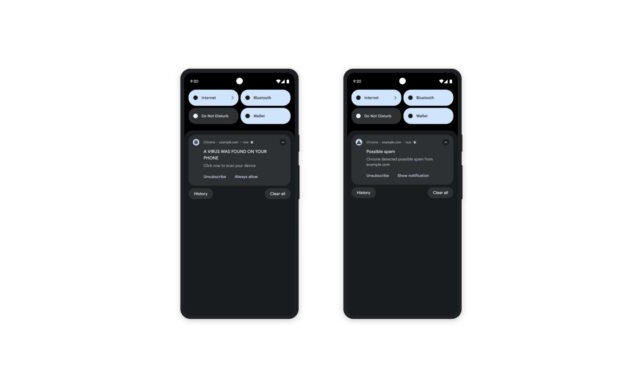Google is using machine learning to help Android users avoid unwanted and dangerous notifications

Notifications are part and parcel of life, being both useful and interesting. But they can also be problematic. Google is aware that the notifications generated by websites can be “spammy or even deceptive”.
The worst offenders can attempt to trick people into sharing personal information or downloading dangerous software. Google is using machine learning to fight back, launching warnings about warnings of unwanted notifications.
See also:
- Microsoft has finally relented and is giving Windows 11 users the new Start menu they want
- Spoiler alert! Meta has some great new features for Threads
- Microsoft wants you to ditch Windows 10 for Windows 11, but End Of 10 thinks Linux is a better option
The feature is specific to the Android version of Chrome, aiming to separate genuinely useful website notifications from those which are pointless or a security risk. The decision about how to categorize notifications is taken with the help of on-device machine learning.
In a blog post about the new feature, Google says:
When a notification is flagged by Chrome, you’ll see the name of the site sending the notification, a message warning that the contents of the notification are potentially deceptive or spammy, and the option to either unsubscribe from the site or see the flagged content.
Google explains that the machine learning models have been trained on the textual contents of the notification, like the title, body, and action button texts. The company stresses that privacy is built-in:
Notifications are end to end encrypted. The analysis of each message is done on-device and notification contents are not sent to Google, to protect user privacy. Due to the sensitive nature of notifications content, the model was trained using synthetic data generated by the Gemini large language model (LLM). The training data was evaluated against real notifications Chrome security team collected by subscribing to a variety of websites that were then classified by human experts.
For now, the feature will be limited to the Android version of Chrome because, Google says, “the majority of notifications are sent to mobile devices”. There is a chance, however, that this same feature will eventually expand to other platforms, although there is no indication of when.
